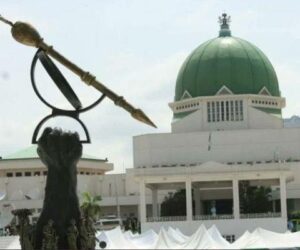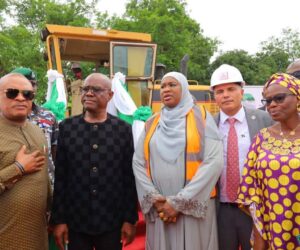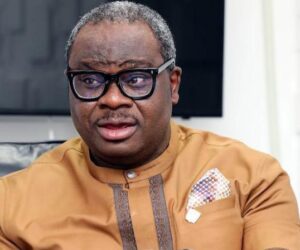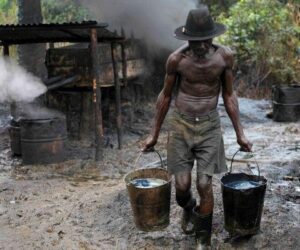.Warns against disruption of petrol supply
Gbenga Komolafe, chief executive officer of the Nigerian Upstream Petroleum Regulatory Commission (NUPRC) has called for dialogue between Dangote Petroleum Refinery and Petrochemicals and the Petroleum and Natural Gas Senior Staff Association of Nigeria (PENGASSAN) as well as the Nigeria Union of Petroleum and Natural Gas Workers (NUPENG), urging all parties to find common ground to resolve their dispute.
Komolafe, who spoke on the issues within the downstream and midstream petroleum sectors involving Dangote Refinery, NUPENG, and PENGASSAN, called for calm and urged the parties to resolve their differences without disrupting energy supply across the country.
Komolafe made these remarks during an interview on Arise Television on Saturday. He said, “Regardless of the fact that the issues involved are purely mid and downstream affairs, our take is that parties should refrain from what will cause disruption in energy supply in the country. We believe that the issues involved are issues that parties can actually sit down, discuss, and reach an amicable solution for the good of the country.”
He also highlighted the significant reduction in the monetary value of oil losses, attributing the improvement to new strategies implemented by the NUPRC.
Commenting on the successes recorded in combating crude oil losses, Komolafe said the express directive of President Bola Ahmed Tinubu to eliminate oil losses using both kinetic and non-kinetic approaches has yielded positive results.
According to the NUPRC boss, President Tinubu’s directives to security agencies and the Commission had reduced crude oil losses by about 90 percent between 2021, when the Commission was established and 2025.
He explained that a set of kinetic and non-kinetic measures had been adopted to curb the menace of oil theft.
For the non-kinetic method, he stated that the Commission had introduced two regulations designed to complement the efforts of the general security.
“These are the upstream measurement regulation and the advanced cargo declaration regulation. So, the Commission has intuitively put these two regulations in place, and the regulations are designed in a way to be implemented in two phases. So, we have implemented the first phase and that is what we are trying to speak to, as it relates to the Federal Executive Council approval in respect of the Engineering Metering Audit,” said Komolafe.
Komolafe further explained that it was long overdue to carry out an engineering integrity assessment of all the metering facilities that had been operating for decades, decrying that Nigeria, in the past, relied on international oil companies for information on quantities of oil exported.
“So, we want to change that trajectory. In fact, our objective is to ensure that we get that done on a real-time basis. This is where we are going to against the production report.
“The first phase is to look at carrying out the integrity of the metering devices. That exercise was conducted in almost 700 points in the upstream.
“We want to track every barrel of crude that is loaded in a tanker so that if a tanker loads 1 million barrels of crude, and it ends up discharging 1.2 million barrels of crude, we will instantly be able to flag it, because the system will be able to flag that the tanker is discharging above the permitted volume.” Komolafe said.








